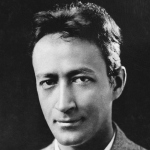... who can bear the idea of Eternal Recurrence?
I
Even as you went over, Nietzsche,
in your last letter, as ever, you tried
to reach him:
“Dear Herr Professor,
When it comes to it I too would very much
prefer a professorial chair in Basel
to being god; but I did not dare to go
so far in my private egoism as to refrain
for its sake from the creation of the world.”
The past before him, the hateful present
stifling no end of futures with noisy smoke,
what could the Dear Herr Professor, magnificently
sober Jacob Burckhardt, do or do for you;
how thrust pitiful hands into what proclaimed
itself a sacred solitude?
Maybe too at times,
syringa blowing through his classroom (gape-
mouthed angels Paracelsus pressed into his lectures
in this very room, throwing all Basel
into an uproar and a hatred that finally
drove him out,
familiars also like a rout
of mornings bickering to swell the retinue
of Dr. Faustus after breakfast), trumpeting
through the profundity of his pauses,
maybe he could let that host, with nothing
to lose in being, be themselves, especially
as there sprang among them heroes out of Raphael
with everything to gain.
Even now Astorre
the horseman, in the twinkle of that scholar
eye, spurs quarrying the dark, falcon-plumed,
plunges, a warrior of heaven, to the rescue
of a youth, fallen with copious wounds,
by this aid exalted.
II
Alas, for all Astorre’s
audacious charging down the margin of the page,
the Professor’s age, parading with its Sunday
family-walks and the thundrous drummers of Basel
in trim, upholstered parks, benumbed him.
What was there for him to do who saw
his begetters, fighting men, furious, mighty
in their pride, tumbled to such petty end?
That beauty being slain on the high places
in the midst of its noblest battle, should he,
exclaiming, dare to tell it, publish it
in the streets so prim and polished, to see
the daughters of the philistines rejoice?
He let you go, best emparadised,
or so you said, in the sparkling shadow
of a sword, retiring into frozen heights,
a terrible loneliness, enhanced by sun.
III
At the end, rocks breaking their doors for you,
out poured the shaggy men, hordes of flame
and drunkenness. Solitude, dressed in winds
and falcons, rang, a honeycomb of voices
hailing:
dancer David; Agamemnon, amethyst
with proud and deadly twisting; Dr. Faustus;
Borgia and Astorre, those human hours,
sowing splendors with their wily wrists.
The peaks, much moved, conscious of the love
that guides by the same capricious path as stars
the agony, the maggot’s tooth, hurtling
to your beloved town, stormed its arcades
past the drowsiest beds. God was dead,
long live the gods.
In that third-floor room,
still going about in your academic jacket
and down at heel, all the heavens rejoicing,
laughing, lifting up your legs,
into the middle of the rout you leaped,
a satyr’s dance, as always, the conclusion
of the tragic truth . . .
IV
You in what we are,
alas, and by your effort that had to fail
have reached us.
And we go, perhaps as the Dear
Herr Professor did, saddened that we cannot
give ourselves,
the Greeks at last, Paul,
St. Augustine, Luther, Calvin too, surpassed
by the resolution—not time could tame it,
not the mob’s indifference—of your fury.


















Comment form: